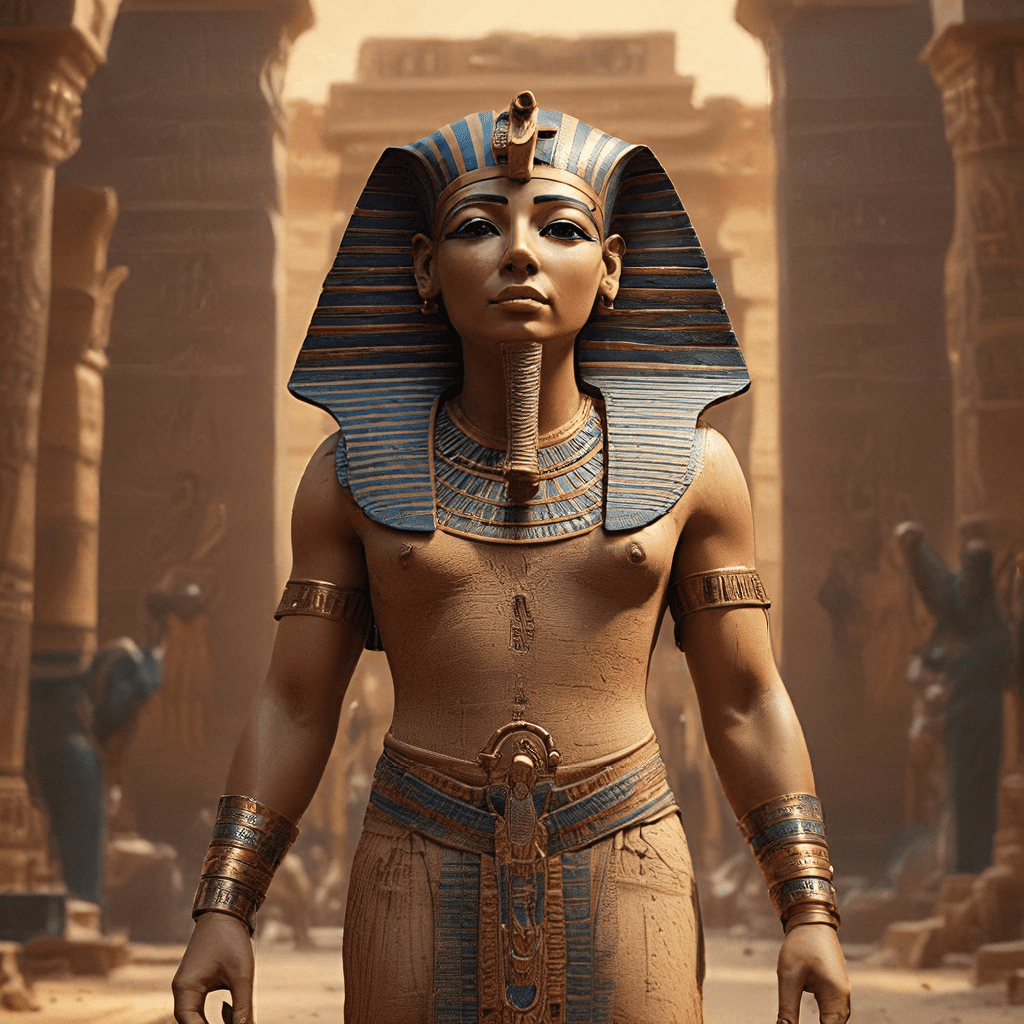Introduction: The Allure of the Afterlife
The ancient Egyptians were fascinated by the afterlife. They believed that life on Earth was merely a preparation for a journey to the next world. Their belief system revolved around the idea of an eternal existence, where a person’s heart was weighed against a feather of truth to determine their fate. This fascination led to elaborate rituals, magnificent tombs, and an intricate collection of religious beliefs.
The Importance of the Soul: More Than Just a Body
The ancient Egyptians viewed the soul as more than just a spiritual essence. In their belief system, the soul was divided into several components, each holding a unique significance. The “ka” was the life force, while the “ba” was the personality and character. The “akh” represented the transformed soul after death, and the “shu” was the soul’s shadow. To ensure a peaceful afterlife, it was essential to preserve all these components.
The Journey’s Guide: Osiris, Judge of the Dead
Osiris, the god of the underworld, was the central figure in the Egyptian afterlife beliefs. He was revered as the judge of the dead, presiding over the judgement of the soul in the Hall of Two Truths. After death, a person’s soul would embark on a perilous journey to the underworld, where it would face Osiris’s judgment. Osiris was also depicted as the god of resurrection and rebirth, representing the hope for a new life in the afterlife.
The Weighing of the Heart: A Test of Worthiness
The most significant aspect of the judgment process was the “Weighing of the Heart” ceremony. During this ritual, the soul’s heart was placed on one side of a scale, while a feather representing truth was placed on the other. If the heart was lighter than the feather, it signified a righteous life, and the soul was granted entry into the Field of Reeds, a paradise reserved for the blessed. If the heart was heavier, it was devoured by the monster Ammit, signifying condemnation to a fate beyond the realm of the gods.
The Process of Mummification – Preserving for the Afterlife
The process of mummification was an elaborate and complex procedure designed to preserve the body for the afterlife. Egyptians believed that the physical body was essential for the soul to return to in the next world. They carefully removed organs, dried the body with salts, and wrapped it in linen bandages. This ritualistic process was believed to ensure the body’s preservation and the soul’s safe passage to the afterlife.
The Book of the Dead: A Guide for the Journey
The Book of the Dead was a collection of spells, hymns, and rituals that guided the soul through the afterlife. These texts contained instructions for navigating the underworld, facing the dangers of the journey, and passing the judgment of Osiris. Each spell aimed to protect the soul from evil spirits and ensure a safe afterlife.
The Field of Reeds: A Promised Paradise
The Field of Reeds, also known as the “Aaru,” was the Egyptian paradise, a lush and fertile land where the souls of the righteous lived in eternal bliss. It was a place of endless sunshine, bountiful harvests, and a carefree existence, where the souls could enjoy the pleasures of the afterlife. This ideal afterlife was a powerful motivator for individuals striving to live a virtuous life and secure their place in paradise.
The Role of Gods and Goddesses in the Afterlife
In addition to Osiris, several other gods and goddesses played significant roles in the Egyptian afterlife beliefs. Anubis, the jackal-headed god, was responsible for guiding the soul to the underworld and preparing the body for mummification. Bastet, the cat goddess, protected the souls from harm, and Thoth, the god of wisdom and magic, recorded the deeds of the deceased. These deities further enhanced the rich tapestry of Egyptian mythology and the complex journey of the soul in the afterlife.
The Influence of Egyptian Beliefs on Other Cultures
The ancient Egyptians’ fascination with the afterlife left a lasting impact on other cultures. Their beliefs influenced the development of funerary practices and religious beliefs in ancient Greece, Rome, and even other parts of the world. The concept of judgment, paradise, and the fear of condemnation became widespread themes in various cultures, demonstrating the enduring impact of Egyptian beliefs on the human understanding of death and the afterlife.
Modern Interpretations and the Legacy of Ancient Egyptian Beliefs
Even today, ancient Egyptian beliefs surrounding the afterlife continue to fascinate and inspire. Scholars and researchers study these beliefs, attempting to unravel the mysteries of their origins and understand their impact on ancient Egyptian society. Modern interpretations of their beliefs offer a deeper appreciation of the ancient Egyptians’ view of life and death. Their elaborate rituals, detailed mythology, and enduring fascination with the afterlife contribute to our understanding of the human condition and our search for meaning beyond the physical realm.




